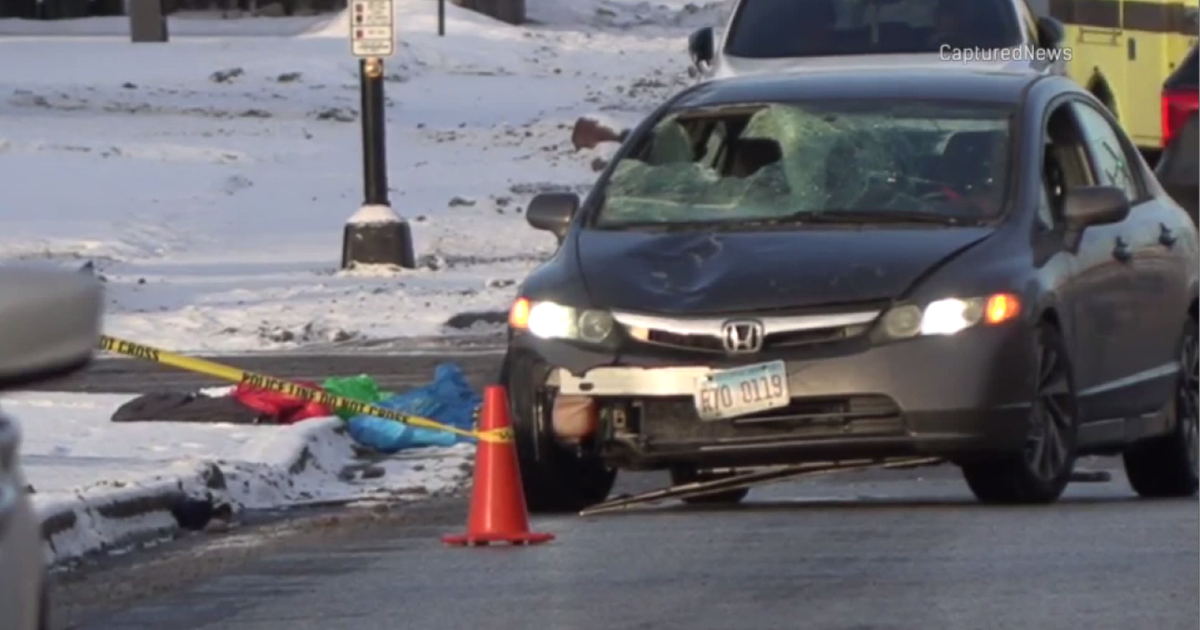North Texas Counties Boost West Nile Prevention Methods
FORT WORTH (CBSDFW.COM) – North Texas counties are continuing their vigilance against the West Nile virus as health officials discover more human cases in area cities.
Dallas County has recorded seven cases in humans so far. Four of those are inside the city of Dallas. Twenty-eight mosquito pools inside the city limits have tested positive for West Nile, as well.
Starting Friday night, Dallas will spray areas in the south, southeast and north quadrants of the city. The insecticide is safe, but residents are asked to stay inside while trucks spray for the mosquitos.
Highland Park was sprayed Friday morning.
Here are verbatim specifics from a Dallas County media release about the affected areas:
Control Area; South Dallas: The area to be sprayed is within an area bounded by South 2nd Avenue, Hatcher Street, S. M. Wright Freeway and Pennsylvania Avenue.
Control Area; Southeast Dallas: The area to be sprayed is within an area bounded on the north by Elam Road, on the west by Prairie Creek Road, bounded by C F Hawn on the south and Acres Drive and Haymarket Road on the east. All spraying is to be conducted within the city limits of Dallas only.
Control Area; North Dallas: The area to be sprayed is within an area bounded on the north by LBJ Freeway, on the west by Dallas North Tollway, bounded by Forest Lane on the south and Hughes Lane on the east.
In Tarrant County, a total of six human cases have been reported to the county's public health department in the cities of Arlington, Fort Worth Kennedale and River Oaks. All victims are between 40 and 80 years old.
Arlington spokeswoman Rebecca Rodriguez says the city uses "a stair-step" prevention approach. The city takes tips from residents and sends crews to the areas to search and eliminate any pools of standing water, which are usually where mosquitoes lay their eggs.
The city uses larvicide to kill the mosquitoes –– residents can buy their own at area hardware stores.
Rodriguez said the city would only spray a targeted area if a concerted need arises. Until then, health officials will continue testing pools, taking tips and passing out fliers that help residents learn ways to prevent West Nile.
In Denton County, six humans have tested positive for West Nile in Denton, Highland Village and in an unincorporated swath in the southern part of the county.
Denton County spokeswoman Kiersten Dietrele said central Denton will be sprayed Monday night at 10 p.m. until 3 a.m. Tuesday. Quoting from a release describing where:
The area to be sprayed is within an area generally bounded by Withers Street to the west to Bell Avenue, Bell north to Schmitz Avenue, Schmitz east to Mingo Road, northeast on Mingo to Willis Street to North Ruddell Street going south until Paisley Street, east on Paisley to Frame Street.
In the pools, mosquitoes are lured to a trap with liquefied fermented grass clippings called "Stinky Water," Dallas County Mosquito Technician Spencer Lockwood said.
"We have the fan and the tube that sucks the mosquitoes up and the mosquitoes will fly up into the net," said Lockwood. And from there, it's off to a county lab to see if any test positive for West Nile.
"We think of it in terms of surgical spraying where we find activity of West Nile," said said Scott Sawlis, the program's entymologist. "Those are the areas that we will treat."
Dallas, much like Arlington, says it doesn't make much scientific sense to simply sature the entire city.
"If you have a cut on your finger, you wrap that with a bandage. We don't mummify you with a complete wrapping," Sawlis said. "That's not a good use of time or chemical applications."
The city of Dallas has about 90 traps –– bugs caught in it are sent to the state for testing. Another plus for not over-spraying? The mosquitoes can grow resistant to chemicals. Trapping them is much more effective, Sawlis said.
But all health officials say the best way to prevent being exposed to West Nile is to remember these catchy four D's:
- DRAIN any standing water
- DRESS appropriately in long sleeves and pants
- Avoid going outside during DUSK and DAWN
- Use insect repellent that contains DEET







